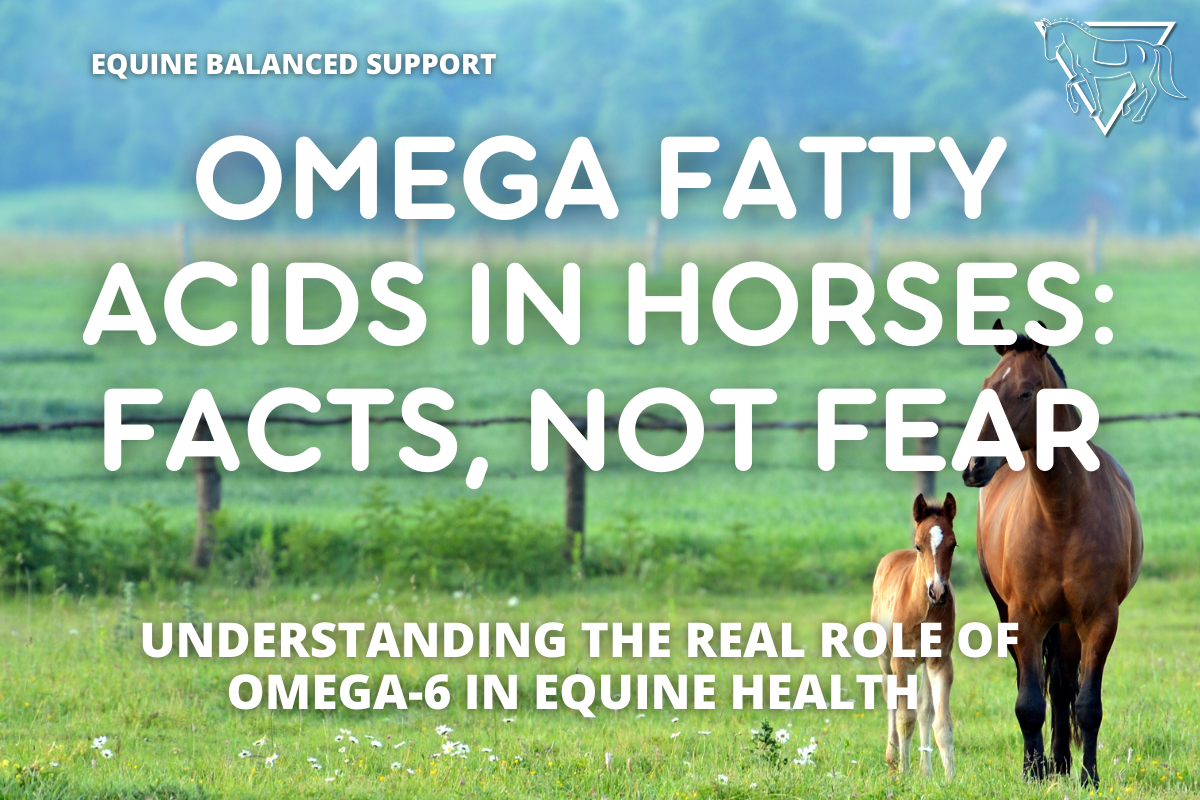Understanding Omega Fatty Acids for Horses: The Truth About Omega-6

Understanding Omega Fatty Acids in the Equine Diet: Clarifying the Controversy Around Omega-6
In equine nutrition, omega fatty acids—specifically omega-3 (n-3) and omega-6 (n-6) polyunsaturated fatty acids—play crucial roles in maintaining health, supporting immune function, and managing inflammation. However, recent social media discussions, particularly on Facebook, have amplified concerns about omega-6s being inherently "pro-inflammatory," leading to widespread confusion. This article examines the science behind omega fatty acids in the equine diet and clarifies the roles they play in health and disease.
What Are Omega Fatty Acids?
Omega fatty acids are essential fats, meaning horses cannot synthesize them and must obtain them from the diet. The most relevant for equine health are:
- Omega-3 (n-3): Includes alpha-linolenic acid (ALA), eicosapentaenoic acid (EPA), and docosahexaenoic acid (DHA).
- Omega-6 (n-6): Primarily linoleic acid (LA) and arachidonic acid (AA).
Sources of these fatty acids vary:
- Omega-3s: Found in flaxseed, chia seed, fish oil, and to a lesser extent in fresh pasture.
- Omega-6s: Abundant in vegetable oils such as corn, soybean, and sunflower oil.
Functional Roles in the Horse
Both omega-3 and omega-6 fatty acids are involved in key physiological processes:
- Cell membrane integrity
- Hormone production
- Immune system modulation
- Skin and coat health
- Neurological development
Omega-6-derived eicosanoids (signaling molecules) are indeed involved in initiating inflammation, a natural and necessary process for healing. However, equating this to chronic, pathological inflammation is a misunderstanding.
The Facebook-Fueled Myth: Omega-6 as “Bad Fat”
The rise of social media platforms has led to rapid dissemination of simplified or misrepresented nutritional concepts. One prevailing narrative claims omega-6 fatty acids are “bad” because they are “pro-inflammatory.” This is a mischaracterization. Inflammation is not inherently harmful—it is the body’s first line of defense. Omega-6 fatty acids, particularly arachidonic acid, produce both pro- and anti-inflammatory mediators.
The real issue is imbalance. Modern equine diets, especially those with high grain or processed feed intake, often skew heavily toward omega-6s, with minimal omega-3s to counterbalance. This can promote a pro-inflammatory state if not corrected.
Spotlight on Linoleic Acid (LA)
Linoleic acid, the primary omega-6 fatty acid in equine diets, plays several critical roles:
- Skin and coat health: Maintains the skin's lipid barrier. Deficiency can cause a dull coat, dry skin, and poor wound healing.
- Cell structure: Contributes to membrane fluidity and cellular function, especially in the skin, gut, and immune system.
- Reproductive function: Supports hormone production, fertility, and tissue development.
- Energy source: Provides concentrated calories, especially helpful for performance or underweight horses.
- Immune modulation: Essential for inflammatory response and tissue repair when balanced with omega-3s.
Ideal Omega-6 to Omega-3 Ratio
There is no universally agreed-upon ideal omega-6 to omega-3 ratio for horses, but most research suggests aiming for somewhere between 2:1 and 5:1, closer to natural forage-based diets. Fresh pasture provides a naturally higher level of omega-3s, helping to support this balance.
Practical Recommendations
- Avoid vilifying omega-6s — they are essential and beneficial in appropriate amounts.
- Supplement wisely — add omega-3s for balance in hay- or grain-heavy diets.
- Assess the full diet — consider forage type, oil use, and total fat intake.
Final Thoughts
The equine nutrition field must remain guided by evidence, not social media trends. Omega-6 fatty acids are not “pro-inflammatory villains,” but essential nutrients that require balance within the diet. Understanding their role in immune modulation and cell signaling helps contextualize their importance rather than fueling unnecessary dietary fears. Instead of eliminating omega-6s, equine diets should focus on achieving a more favorable omega-3 to omega-6 ratio, particularly in performance, metabolic, or inflammatory-prone horses.
Shop Smart Fats for Balanced Omega Support:
Med Vet Omegas – Skin & Coat Health
Uckele CocoHoof – Hoof & Coat Support





Leave a comment